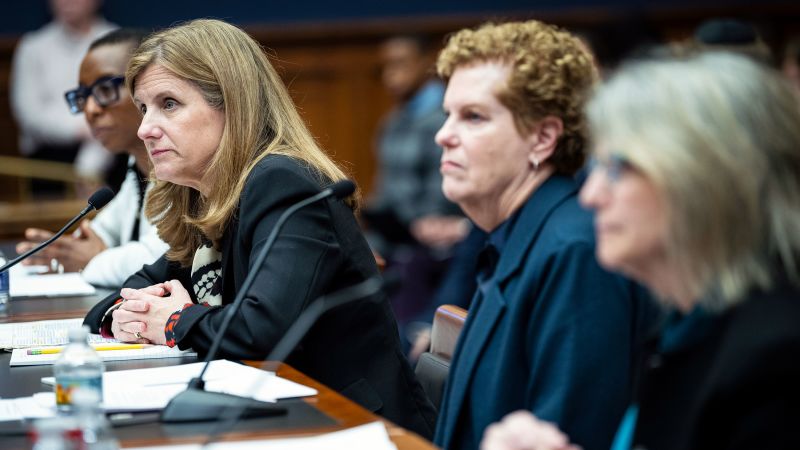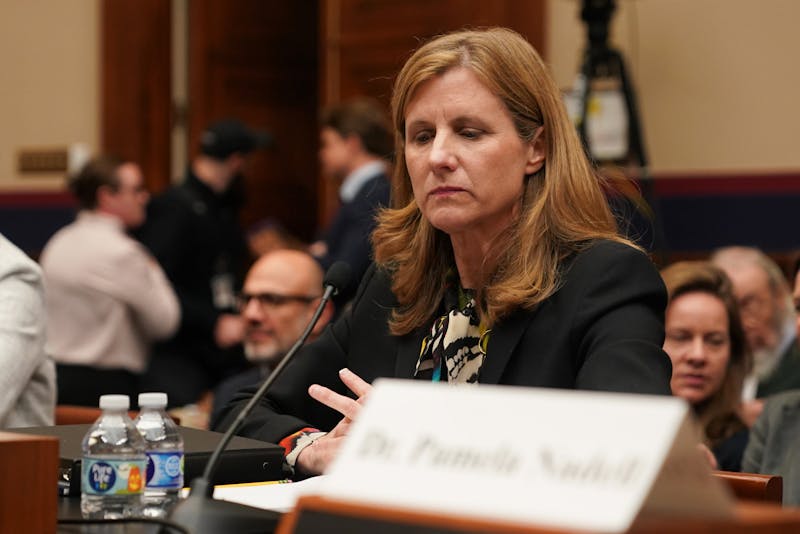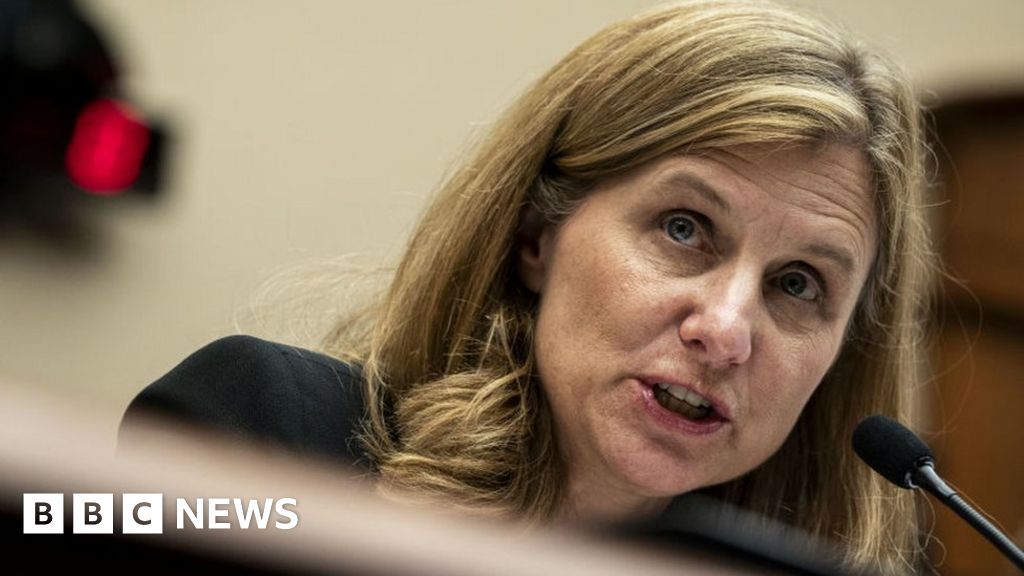






/cloudfront-us-east-1.images.arcpublishing.com/pmn/BK36TXUYEED6V535SGDQSB53JE.jpg)
University of Pennsylvania President Liz Magill and Columbia University President Minouche Shafik have both resigned following a series of controversies and growing backlash.
The first event that sparked controversy at UPenn was a festival celebrating Palestinian culture, which faced criticism due to the guest list. High-profile donors and the Anti-Defamation League expressed their dissatisfaction with Magill and Penn's leadership [ac50b382]. The second event was Hamas' attack on Israel, which further intensified the backlash and led to demands for Magill's resignation [4f1b8b91]. The third event was a surge in antisemitic incidents on campus, which raised concerns about the safety of Jewish and Israeli students, teachers, and faculty [11a4f763]. The fourth event was Magill's testimony before Congress, where she faced criticism for her response to questions about calling for the genocide of Jews [5d2f67bc]. The Wharton Board of Advisors and the CEO of the Anti-Defamation League called for Magill's resignation, and major donor Robert Stevens threatened to withdraw $100 million worth of shares in his company currently held by Penn if Magill remained as president [148bbdc7]. These events ultimately led to Magill's resignation.
At Columbia University, President Minouche Shafik is facing calls for her resignation as 50% of campus survey respondents believe she should step down [eb356eb2]. The protests at Columbia University were sparked by students opposing Israel's military offensive in Gaza and demanding that the university divest from Israel. Shafik controversially asked the NYPD to clear the encampments, which led to criticism. The survey revealed that 32% of respondents believe Shafik is stifling freedom of speech, while 10% think she has done too little to combat anti-Semitism [eb356eb2]. Despite the calls for her resignation, Shafik has managed to hold on to her position. The protests have drawn parallels to the anti-Vietnam War protests in 1968, which solidified Columbia's reputation as a home for progressive student movements [eb356eb2].
The resignations of Magill and Shafik have sparked various reactions and responses from different groups and individuals. Some students and faculty members expressed concerns about the lack of a coherent approach from the administrations in response to conflicts. The AAUP-Penn Executive Committee called for the restoration of a strong faculty voice in governing the university and emphasized the need to defend principles of shared governance and academic freedom [279a902b]. Various politicians, including Sen. Bob Casey Jr. and Rep. Elise Stefanik, weighed in on the resignations, with Casey calling for a safe environment for all students and Stefanik expressing support for Magill's departure [279a902b]. The progressive Jewish group Penn Chavurah criticized Magill's resignation as an infringement on academic freedom and a precedent for future limitations on free speech [d148fd69]. The resignations also prompted calls for a congressional investigation into allegations of antisemitism at Penn and other universities [11a4f763]. Some individuals, such as Harun Küçük, former director of the Middle East Center, expressed regret at Magill's departure and hoped for a successor who could address hate on campus while respecting academic freedom and freedom of speech [5d2f67bc].
The protests at Columbia University have drawn attention to issues of freedom of speech and anti-Semitism on campus. The survey results reflect a divided opinion on Shafik's leadership, with some criticizing her for stifling freedom of speech and others believing she has not done enough to combat anti-Semitism. The protests have also drawn comparisons to past student movements at Columbia, highlighting the university's history as a hub for progressive activism [eb356eb2].